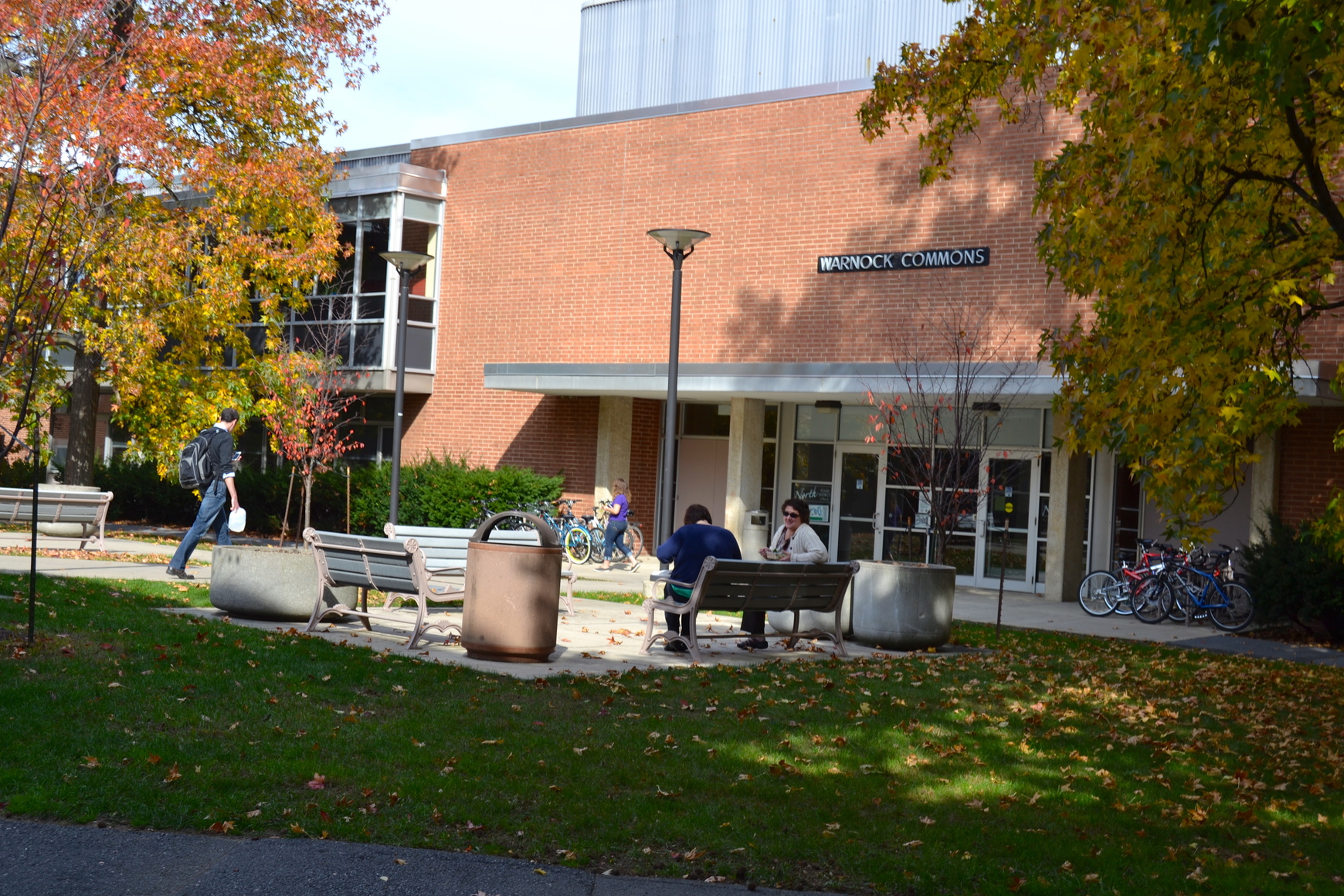New Counselors Add Mental Health Care For Penn State Student-Athletes

Katy Pohland and Heidi Christy have only been working together since December of 2022, but those who meet them are often under the impression that they’re long-time colleagues. They just “clicked,” according to Christy.
The duo understands each other, an important aspect of their working relationship as they build roles within Penn State Athletics that the university has never had before — athletic counselors.
Pohland and Christy are the first two hires in a program aimed to combat mental health issues among student-athletes. Their hirings were the first of several as Vice President for Intercollegiate Athletics Pat Kraft tries to implement his vision for Penn State Athletics and how the school will help student-athletes, according to Lauren Rhodes, one of Kraft’s deputies.
“You could hear in every speech that he gave and every conversation he had, the impetus that he was placing on student-athlete welfare,” Rhodes said.
Rhodes focuses on student-athlete welfare, meaning that working with mental health for those student-athletes has become a key part of her job. She hired Christy and Pohland, a decision she has no second thoughts about.
“It has been nothing short of amazing,” she said. “They’re good people. I knew they could figure it out.”
Neither counselor has much experience in sports, Rhodes said, so colleagues have had to coach them on the basics of competition — even which teams to cheer for in a game. However, when it comes to their jobs, Christy and Pohland have excelled.
“The practitioner side, they’ve been absolute rock stars,” Rhodes said. “We’ve had some cases that…were tough to manage, and they just knocked them out for us.”
As the first counselors in the new program, Christy and Pohland have had to build it from next to nothing, often physically.
“From furniture to the system to the policies, [we’re doing] everything from the ground up,” Christy said.
Neither Penn State nor the NCAA has much guidance on what athletic counseling should look like, so the pair is largely responsible for their own codes and rules.
From the administration to the student-athletes, Pohland said Penn State has been extremely welcoming to the newcomers.
“They’ve been wanting this,” she said about the student-athletes. “I think that this has been a welcome addition.”
By their nature, Christy and Pohland’s jobs don’t necessarily fit into the confines of a typical nine-to-five. They’re available when student-athletes need them to be, which can turn into a 24-hour job.
“Our biggest concern was what was happening after hours,” Rhodes said. “A lot of our crises in athletics are between 8 p.m. and 5 a.m…they’re happening on Saturdays and Sundays, they’re happening when someone is having a panic attack, [when someone is] going into a game, right? That’s when we needed someone there.”
The counselors have to be ready at the drop of a hat to respond to a crisis, but they have a plan in place for when it happens.
Even when someone isn’t in the middle of a crisis, both Christy and Pohland are available nearly around the clock. They have to adapt to the frenetic lives of student-athletes, no matter when they need help.
“One of the big reasons why Pat wanted this, and why he pushed for this, is he wanted athletes to be able to have access based on their schedules,” Pohland said. “We don’t have a set schedule. We work evenings and weekends, we’re the on-call service for the student-athletes. We want to be involved in every aspect of their care.”
Currently, Pohland and Christy’s job is reactive. Student-athletes have had issues building up for years, and until now, they haven’t had an outlet to deal with those issues.
“We knew coming in here, the first 18 months is going to be a lot of crisis and a lot of reacting,” Pohland said. Dealing with late-night panic attacks and after-hours crises isn’t necessarily common, but it’s an expected part of the job.
Past those first 18 months, Penn State is hoping Pohland and Christy’s jobs become more proactive so they can help student-athletes before a crisis occurs. Treatment and managing symptoms help student-athletes avoid any significant issues.
Even further down the line, the pair has big dreams for their fledgling program.
“I think my dream would be…having a mental health and wellness building where we’re there, sports psychologists are there, and the medical team [is there], so it’s like a one-stop place,” Pohland said.
More than anything, Christy doesn’t want to be tucked away.
“We don’t want to be hidden,” Christy said. “We want to be part of the health team. We want people to be like, ‘It’s OK to take care of [mental health] as part of your holistic approach.'”
Even with the new hires, Rhodes feels Penn State Athletics is severely understaffed. Two counselors aren’t enough to serve hundreds of student-athletes, and the school will have to expand in the future.
“I can only imagine being a student-athlete today, not having help and support,” she said. “Your typical caseload for therapists should be no more than 25 [people]…That’s like needing 34 therapists.”
Rhodes has already started the process of adding more counselors, with a new case manager hired in recent weeks. A fourth therapist is also expected to start in the near future. Still, Penn State has a long way to go.
“It’s never going to be enough, to be honest,” Rhodes said.
However, Christy and Pohland have already made strides and are looking forward to growing the program.
“We’re both excited,” Pohland said. “This is a great opportunity. We’re excited about the position and excited to build a program.”
Your ad blocker is on.
Please choose an option below.
Purchase a Subscription!




